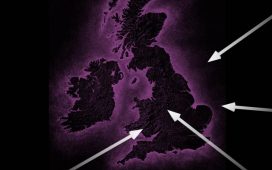A German court has rejected a climate case brought by a Peruvian farmer against the German energy company RWE, but set a potentially important precedent on polluters’ liability for their carbon emissions.
The upper regional court in Hamm confirmed that companies could be held liable for climate damages in civil proceedings but rejected the argument by the farmer and mountain guide Saúl Luciano Lliuya that his home was at direct risk of being washed away by a glacial flood.
However, the judge in the case ruled that companies “may be obligated to take preventive measures” to counter their emissions, according to a statement from the higher regional court in Hamm.
“If the polluter definitively refuses to do so, it could be determined, even before actual costs are incurred, that the polluter must bear the costs in proportion to their share of the emissions,” the court concluded.
It said the risk to Lliuya’s home, which is higher than many of the surrounding houses, did not meet the threshold needed to proceed to the next stage of the evidentiary hearing, which would have explored RWE’s role in heating the planet.
Lliuya initially filed a case against RWE in 2015, backed by the non-profit Germanwatch, to make the company contribute to local flood defences in line with its share of planet-heating pollution. The German electricity company is one of the world’s biggest greenhouse gas polluters but has never operated in Peru.
Lliuya’s case was at first thrown out by a lower court in Essen, where RWE is headquartered, but the appeals court in Hamm later found it to be “admissible”. Climate campaigners hailed it as a development that would open the door for fossil fuel companies to be held liable in civil courts for global harms.
The court said it would not be possible for Lliuya to appeal against Wednesday’s ruling.
Lliuya’s home sits in the Andean town of Huaraz, large parts of which were wiped out in 1941 when Lake Palcacocha overflowed and triggered floods that killed thousands of people. A hearing in Hamm in March centred on the direct risk of a glacial lake outburst flood resulting in damage to Lliuya’s property. The court, however, found there was “no concrete danger to his property” from a potential flood.
The ruling was nonetheless a milestone for climate litigation, Lliuya’s lawyer Roda Verheyen said in a statement. “For the first time in history, a higher court in Europe has ruled that large emitters can be held responsible for the consequences of their greenhouse gas emissions,” she said.
The outcome of the case would “give a tailwind to climate lawsuits against fossil fuel companies, and thus to the move away from fossil fuels worldwide”, she added.
Noah Walker-Crawford, a research fellow at the Grantham Research Institute on Climate Change and the Environment, said: “This ruling sets a significant precedent. The court confirmed that climate science can provide a basis for holding companies liable for their contribution to climate-related risks. It recognised that emissions from a specific company may be linked to real-world climate impacts, such as the increased flood risk.
“Although the claim was ultimately dismissed on the facts – because the risk in this case was not found to meet the legal threshold – the judgment clearly signals that causation in climate litigation is legally possible.
“This decision clarifies how climate science can inform judicial decision-making on corporate climate liability. It strengthens the foundation for future claims where the evidence is even more robust.”
Climate campaigners have increasingly taken polluters to court for their role in heating the planet, several of which have resulted in courts ordering greater efforts to cut pollution.
Similar cases that are ongoing have been filed in Belgium by a cattle farmer targeting the French oil giant TotalEnergies, and in Switzerland by four Indonesians targeting the cement maker Holcim.
RWE said that it had “always operated its plants in compliance with applicable law.
“It would be an irreconcilable contradiction if the state permitted CO2 emissions, regulated them in detail and in some instances even required them, but at the same time retroactively imposed civil liability for them,” it said in a statement.










